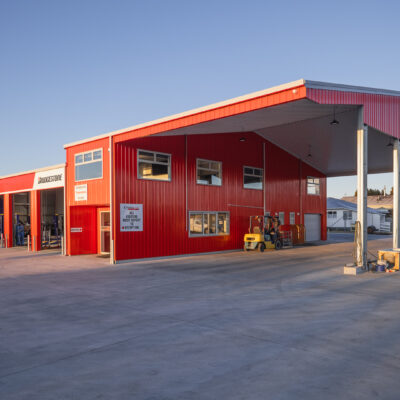Four Decisions that will help your business grow
In growing your business, there are four decisions you must focus on or you risk leaving significant revenues, profits, and time on the table.
696
By Leigh Paulden.
Every year, around 40 thousand new Kiwi businesses are born. A few grow into large, internationally recognised operations, some will become fair to middling companies and the majority will disappear without a trace. According to Statistics New Zealand, just under 48,000 businesses stopped trading in 2012. And, the trend usually shows more business deaths than births.
The differences between those that grow profitably and sustainably and those that disappear without a trace are usually clear. So what is it the runaway success stories are doing differently from those that get stuck?
It’s not that the stuck businesses don’t want to grow – growth may be their goal, but it’s not happening. Why? Part of the answer lies in their goal and core values. Expansion for expansion’s sake is not sustainable. Deciding you want to grow by 15 or 25 percent a year means you’re chasing numbers, instead of chasing your core purpose. And, if you’re not focusing on your core purpose, you will lose your way.
If a company grows at 15 percent per annum, it will double in size every five years. A $10 million company that grows at 25 percent annually for 12 years will have turnover of $144 million. That’s a massively different company. To survive it needs to have a clear focus on what it’s doing, why – and how.
In growing your business, there are four decisions you must focus on or you risk leaving significant revenues, profits, and time on the table.
We know that decisions equal success and to sustain growth, you need to focus on people, strategy, execution, and cash.
The Gazelles Four Decisions
1. People
Everything rests on your people. If you don’t have the right people, your business will not be consumed by personnel issues, making it difficult to focus on anything else.
Your people may be right for your company now – but will they be right for a much bigger company in two, three or five years?
Can these people operate at the level required? If not, how are you going to change this? You may need specialist skills you haven’t needed until now – how are you going to get them? Are you going to hire staff or outsource?
Do your people align with your core ideology? Does the structure around them support them to do their best?
Get your people right, and then you can focus on the next three decisions.
2. Strategy
When revenue is not growing as you would like, or is slowing, it is time to re-address your strategy.
What are you selling, who are you selling it to, and where are you selling it? What is your core ideology? Why do you do what you do?
What is your 10 to 20-year Big Hairy Audacious Goal (BHAG)? Many organisations don’t know where they want to be in a decade, so they don’t know if their actions are right for the long term. Are you spending money and resources being reactive, rather than doing things that move you closer to your goal? Having a BHAG helps to give an organisation its long-term direction and increases its share value to others.
Once you have set your BHAG, you can then determine what you need to do to get there. That is what will keep you sustainably moving forward.
3. Execution
If revenue is increasing, but profit isn’t following suit you need to look at how you’re executing your strategy.
Does your annual plan, quarterly and personal plan align to your BHAG? Do they help your team align to the company’s priorities?
Are you executing the right things, to move your company forward as a company? Are you executing them on time?
Execution drives profits and time. Good execution results in higher than industry average profits and more time for management to work on the business.
4. Cash
It may seem obvious, but too many would-be growth companies don’t have the cash they need.
Growth sucks cash – will you have enough cash to grow? Cash is oxygen to a company, knowing your cash conversion cycles and improving them is vital to let your company breathe and grow.
If you do not have the right people – in the right seats – it will be hard to set strategy correctly. Without good strategy, execution is unlikely to happen well or on time and this will directly affect your cash and cash cycles.
The difference between a growth business and a stuck business is not luck. The difference is the attention the growth business pays to getting its four core decisions right, setting it up for the future it desires.
As an internationally certified Gazelles business and executive coach, Leigh Paulden works alongside businesses serious about growth and success. Visit http://www.advancing-businesses.co.nz/




